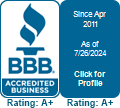Keeping Your 501c3 in Compliance

Once you've navigated the path to obtaining 501c3 status, there are important measures required to maintain your exemption with the Internal Revenue Service (IRS). This overview is a starting point in understanding how to remain in compliance.
Fundraising
Fundraising and applying for grants to support the functions of your organization are all within the rules of operation; however, all funding received must go toward the activities and programs of the organization or toward salaries for its employees.
Jeopardizing Activities
Various activities can jeopardize a nonprofit organization's 501c3 status, including benefits to private interests and prohibited political activities.
Benefits to Private Interests
The organization cannot be structured or run for the sake of benefiting private interests. For example, the officers and directors of the organization can take reasonable salary and compensation. However, the officers and directors cannot take unreasonably high salaries and other forms of compensation.
Excess economic benefits given to contributors may incur an excise tax as well as the loss of 501c3 status. This involves the organization giving a benefit higher in value than the donation or other consideration it received; it also applies when a supporting organization provides a grant, loan or other compensation to a substantial contributor of the main organization.
Prohibited Political Activities
The nonprofit organization may not become involved in political campaigns for public office in either support or opposition. This includes contributions to campaigns on behalf of the organization and public statements of support or opposition. Certain activities are exempt, such as nonpartisan voter education and registration or hosting a public, balanced forum. Any show of bias, however, violates the rule.
501c3 organizations also may not participate in substantial lobbying to propose legislation or to encourage passage or defeat of proposed legislation. The IRS considers the time and expenditures involved in lobbying activity when determining substantiality. Organizations other than churches may file to determine substantiality based on the organization's size and a set expenditure limit. If an organization exceeds limits over a period of four years, it may lose exempt status, making all its income for the period subject to taxation.
Finances and Filing Requirements
To retain 501c3 status, most exempt organizations must submit financial and other information annually on Form 990. The specific type of 990 form required depends on the amount of annual gross receipts. Small organizations with gross receipts under a set limit may typically file Form 990N as an electronic postcard. Failure to file required forms for three consecutive years will result in automatic loss of exemption status.
An organization must file a business tax return if it receives unrelated business income that exceeds current limits, including income from advertising, most gaming activities and merchandise sales unrelated to the organization's stated purpose. The organization must also make quarterly estimated payments in advance if it will owe tax above set limits on the unrelated business income.
Organizations with paid employees have additional payroll filing requirements. These organizations are responsible for withholding and paying employment taxes, including federal, FICA and applicable state taxes. Each state has its own filing requirements. Church employees are not exempt from income taxes, although some may be exempt from FICA taxes.
Recordkeeping
Nonprofit organizations should keep a variety of documentation in support of their exempt status. These include:
- Copies of the application for 501c3 status and the determination letter.
- Copies of bylaws, articles of incorporation and any related amendments.
- All financial records showing assets, income and expenses.
- Employment records and the organization's Tax ID number.
- Documentation describing programs the organization operates.
- Minutes of board meetings.
Each organization must remain aware of ongoing changes the IRS may institute.





